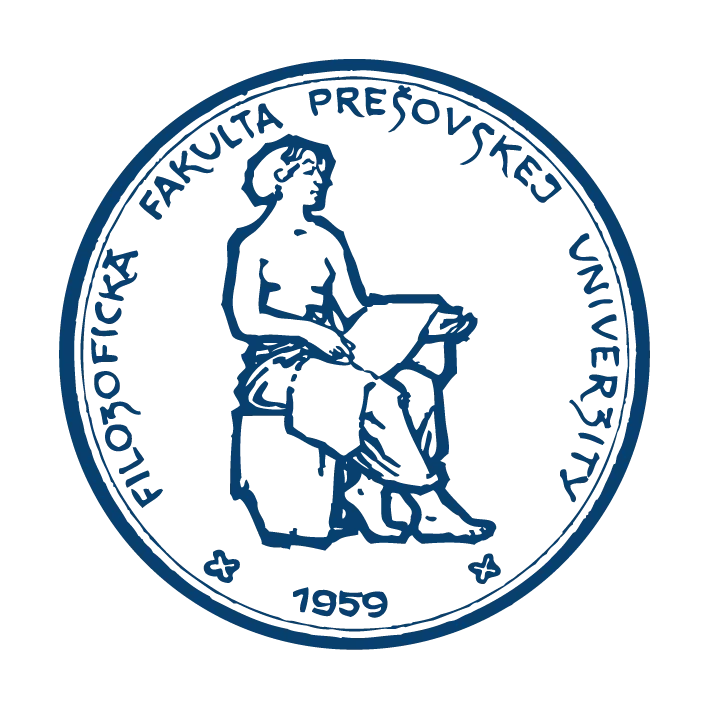COURSES FOR INTERNATIONAL STUDENTS
COURSES FOR INTERNATIONAL STUDENTS
PONUKA PREDMETOV PRE ZAHRANIČNÝCH ŠTUDENTOV
Akademický rok 2023/2024
Inštitút etiky a bioetiky, FF PU
Name of the subject Code Nb of ECTS Semester
INTRODUCTION TO ETHICS 1IEB/UVET1/15 6 winter
Course is devoted to the introduction to ethics, including the basic concepts of ethics and morality, for example moral principles, norms, values, rules. It works with the selected contemporary ethical theories and particular moral problems, for example abortion, euthanasia, issues of human rights, animal rights and so on.
Final assessment
The evaluation will be based on an essay in the range of 1500-2000 words with a critical analysis of the background literature and the formulation of their own opinion on the topic.
BIOETHICS 1IEB/BET1/15 7 winter
Main attention within this course is put on the understanding of bioethics as applied ethics. It presents elementary theoretical methodological approaches in bioethics, methodology of resolving the bioethical dilemmas. Various ethical and moral issues are addressed, for example in genetics, human genetics, in assisted reproduction and many others.
Final assessment:
The course ends with an examination and a student obtains 7 credits. Student must obtain certain amount of points (according to number of credits) to be able to take the exam along with an active participation on seminars. Assessment is based on the written test (34% rating), as well as the overall work of the student during the semester (66% rating). Total score for the completion of the course is the sum of the above two conditions, but in both parts the student must meet the minimum requirement set.
MEDICAL ETHICS 1IEB/MET1/15 4 winter
The course on Medical Ethics works with the basic characteristics and ethical dimension of theory and practice in medicine. It includes the historical perspective on medical ethics as well as contemporary philosophical issues. It works with various perspectives of its understanding – as an applied ethics, as professional ethics, which includes the reflections on various ethical issues in medicine (palliative care, transplantation, end of life decisions….)
Final assessment:
The course ends with an examination and a student obtains 4 credits. Student must obtain certain amount of points (according to number of credits) to be able to take the exam along with an active participation on seminars. Assessment is based on the written test (60% rating), as well as the overall work of the student during the semester (25% rating) and seminar paper (15% rating). Total score for the completion of the course is the sum of the above three conditions.
SYSTEMATIC ETHICS 1IEB/SYET1/15 5 summer
Within the course, main attention is devoted to the issues of morality and religion, understanding of man as a moral subject, relation of theology and deontology, issues of good, evil, virtue, happiness, suffering, injustice, humanity, human dignity, moral right, love, death and many other concepts and their critical analysis.
Final assessment:
The evaluation will be based on an essay in the range of 1500-2000 words with a critical analysis of the background literature and the formulation of their own opinion on the topic.
INTRODUCTION TO APPLIED ETHICS 1IEB/UAET1/15 5 summer
Main attention of the course Introduction to applied ethics is devoted to the issues of development of applied ethics, its individual types, problem of interdisciplinarity. Contemporary trends in applied ethics are addressed, as well as its methodological issues and emphasis on its need in present times and its forms.
Final assessment:
The discipline ends with an exam and obtaining 5 credits. The evaluation of the exam is based on the written exam itself (34% of evaluation), the complex performance of the student during the term (66%). The evaluation is therefore a sum of all criteria and student must obtain at least minimum requirements to pass the discipline.
SOCIAL AND POLITICAL ETHICS 1IEB/SPET1/15 7 summer
This course offers introduction to social and political ethics as a kind of applied ethics with the main emphasis on the values of freedom, justice, equality, accountability. Practical issues of social and political ethics are reflected, for example: Is it possible to achieve equality in society? Just society - reality or utopia? Globalization: its pros and cons - ethics of globalization? Participation and solidarity: solidarity crisis behaviour on the labour market vs. focus on earnings. A fair system of distribution of goods and services. Disproportionate production / consumption and its impact on the environment. Question (border) freedom. Problems of racism and discrimination issues, including the importance of human rights minorities (ethnic, cultural, religious, sexual, etc.). Multiculturalism and tolerance. War and peace, violence and terrorism.
Final assessment:
The course ends with an examination and a student obtains 7 credits. Sstudent must obtain certain amount of points (according to number of credits) in order to be able to take the exam along with an active participation on seminars.
TEXTUAL SEMINAR ON ETHICS OF POLITICS 1IEB/TSEP/15 3 summer
Textual seminar on ethics of Politics represents the entry to the issue of ethics of politics. The students will read and interpret selected texts of concrete authors: Huntingtons Clash of civilizations and Fukuyamas The end of history and the last man.
Final assessment
The course ends with a continuous assessment and student must obtain certain amount of points (according to number of credits). Student has to actively participate on seminars, master all topics of the course. If he/she fails to obtain the points necessary to gain credits, he/she must write an essay or seminar paper and thus prove he is capable to write a paper in the presented topic.
